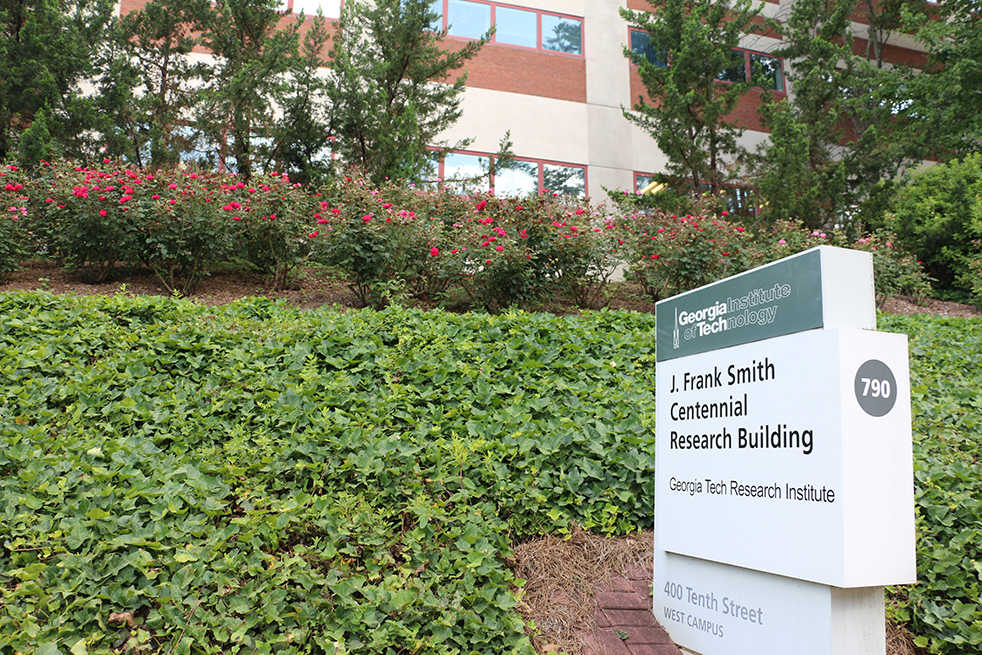After a five-month-long search process, the four finalists for the Executive Vice President of Research (EVPR) have been announced. The finalists hail from different universities across the country, and throughout late May through June, each visited campus for interviews, where they also presented their ideas for the EVPR role in one-hour seminars held in Clough Commons.
The EVPR, a member of the President’s cabinet and one of the three executive vice presidents at Tech, oversees all research efforts across campus, including the Georgia Tech Research Institute (GTRI) and the different interdisciplinary centers across campus. Accordingly, during their seminars, multiple candidates touched on how to increase synergy between GTRI and the rest of campus, and drive up research expenditures while attracting more funding from government, industry, and elsewhere.
Chaouki Abdallah, provost and executive vice president for Academic Affairs at the University of New Mexico (UNM), presented his seminar, “Creating the Next in Research,” on May 30, in which he spoke on a platform of streamlining Tech’s research mission and strengthening ties to project managers who write research grants and industry companies that want to fund research.
Abdallah highlighted his close roots to Tech, where he earned a Ph.D. in electrical engineering in 1998, met his wife and where his two children currently study computer and biomedical engineering. Abdallah also served as the 22nd president of UNM between Jan. 2017 and Feb. 2018, said he would try to hit the ground running in his role as EVPR by talking to as many people as possible and receiving feedback with the first 100 days.
“I think there is value in trying to make sure that when you get with folks and you try to ask them about their passions and so on, to sit their offices to make sure you are in their home turf because that is when they are going to tell you things,” Abdallah said.
Dimitris Lagoudas, Associate Vice Chancellor and Senior Associate Dean for Engineering research at Texas A&M University, spoke on June 4. Lagoudas spent the first half of his seminar his personal journey from Greece to Texas A&M and detailing the projects with which he has been involved with, including his leadership of the Texas A&M Engineering Experiment Station, a conglomerate of different collaborations and research centers.
“I see [Georgia Tech as] a research powerhouse,” Lagoudas said. “That’s the impression I get from where I’m coming from, and I think that [it] is a fair assessment,”
Lagoudas spoke about the importance of a multifaceted approach of aligning with government objectives, recruiting diverse talent and forging partnerships with other institutions in order for Tech to maintain its eminence as one of the top research universities in the country.
Abdallah and Lagoudas both suggested doubling down on some of the areas identified in the National Science Foundation’s 10 Big Ideas and the National Academy of Engineering’s Grand Challenges for Engineering, which are two topical lists that help to guide researchers across the country in their studies.
Rashid Bashir, the executive associate dean and chief diversity officer of the Carle-Illinois College of Medicine at the University of Illinois at Urbana-Champaign, discussed how he would like to see Tech continue to diversify its sources of funding.
“We have to look for more non-traditional sources of research funding … I think [industry support] is pretty strong, and I think it could be stronger, especially with GTRI,” Bashir said, speaking in his June 6 seminar.
Bashir conjectured specific directions that Tech could pursue in research, such as a “Biomedical Translational Research Institute,” and building partnerships with pipeline programs to increase diversity and develop young to-be-researchers.
“The goal would be to make Georgia Tech, if it is not already, continue to make research the economic engine for Atlanta and the region,” Bashir said.
Albert Pisano, who avoided the use of slides during his June 12 presentation, stressed his 37 years of experience weaving between academia, industry and government.
“I’ve served as a professor, entrepreneur, … administrator, and indeed, some time at DARPA,” Pisano said. “And if you wanted to look for a pattern in each of those career decisions, I’m hoping that you see that you find an enthusiastic person who’s always eager to jump into a situation and have a lot of positive effect.”
As dean of UC San Diego’s Jacob School of Engineering, Pisano grew research expenditures by over 18% over three years until it had the top annual research expenditure per faculty capita among all public engineering schools. When it came to ideas for Tech, Pisano focused less directly on Tech’s research efforts and spoke more on increasing the coordination between the different colleges and improving the student experience.
“The number one thing I think is to bring forward an undergraduate and graduate candidate who is better and better equipped to deal with the more complication — more complicated jobs that they’re being confronted with,” Pisano said. “And if you want to be known for supplying that person, then I think you can drive your relevance with industry that way.”
The selection for the new EVPR will be announced in August, and the chosen EVPR will begin his post in the fall semester.
